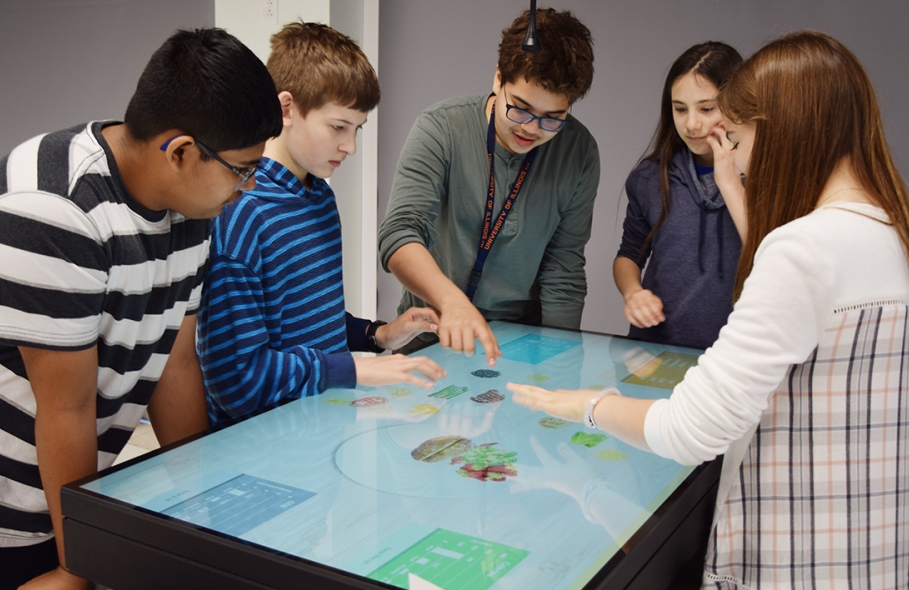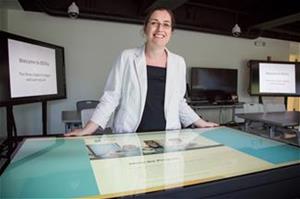C&I professor developing app to teach children about environmentally sound dietary choices
by Sharita Forrest / May 20, 2016

 The biggest decision many children have regarding their diets may be deciding whether to have fries with a fast-food burger. However, a new educational software application under development by a research team led by Emma Mercier, an assistant professor in the Department of Curriculum & Instruction, is introducing middle school students to the topic of climate change and showing them how their dietary choices affect the planet.
The biggest decision many children have regarding their diets may be deciding whether to have fries with a fast-food burger. However, a new educational software application under development by a research team led by Emma Mercier, an assistant professor in the Department of Curriculum & Instruction, is introducing middle school students to the topic of climate change and showing them how their dietary choices affect the planet.
The Food for Thought app displays a dinner plate that students fill by touching the computer screen and dragging their food selections onto the plate. As students create a meal, the app graphically tallies the nutritional data and carbon footprint associated with each food item and with the overall meal, such as the amount of calories in a salad and the amount of water that would be used in growing the lettuce.
“There are two learning goals here: Make kids aware of the causes and impacts of climate change, and help them become data literate – that is, knowledgeable consumers of the media,” Mercier said.
Mercier’s team videotaped groups of students from University Laboratory High School as they explored climate change issues at the local and global levels. The students examined various graphs, representations, and images that were provided via traditional learning materials and on 27-inch multitouch screens, while the researchers observed the amount of support that students needed to interpret the data and how they used the information.
Developing technologies for teachers to use in teaching children about climate change is important because climate change is associated with more than 40 percent of the disciplinary content in the Next Generation Science Standards for kindergarten through 12th-grade education, Mercier said.
Teaching children about climate change is important because it's associated with more than 40 percent of the disciplinary content in the Next Generation Science Standards for kindergarten through 12th-grade education.
Based on a framework developed by the National Research Council, the Next Generation Science Standards comprise a set of core ideas that students are expected to know by the time they graduate high school. The Illinois State Board of Education adopted the standards in 2014.
The data that the research team collected during the trial with the University Laboratory High School students will be used to better understand how learners engage in collaborative problem-solving and to develop technologies that support collaborative learning about climate change. Mercier plans to apply for additional grant funding to refine the Food for Thought app, with the goal of making it available to area schools in the near future.
Read the full article from the Illinois News Bureau.